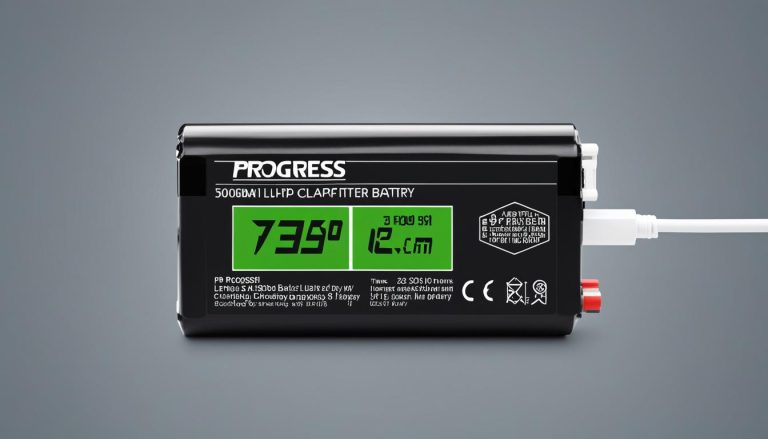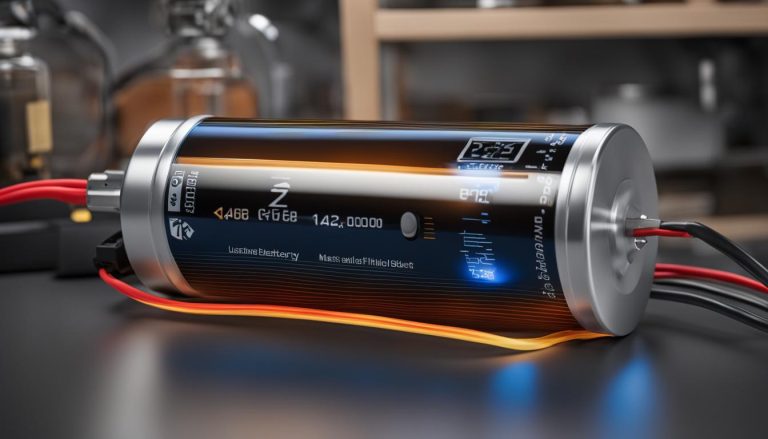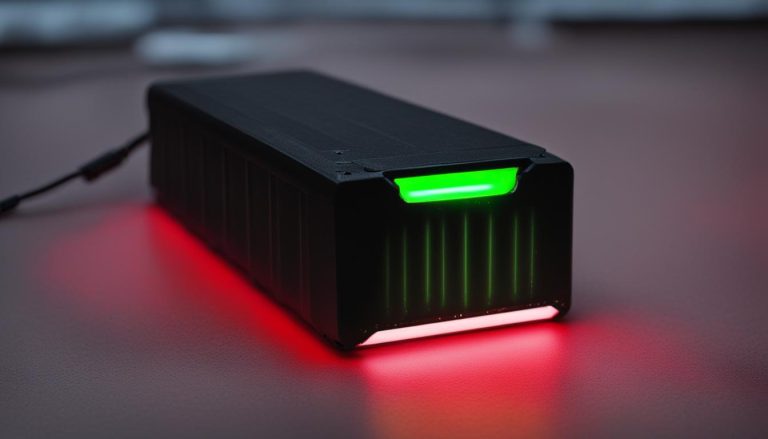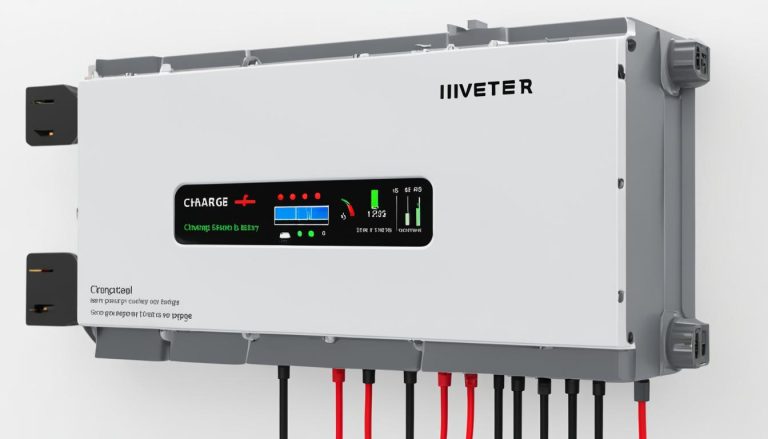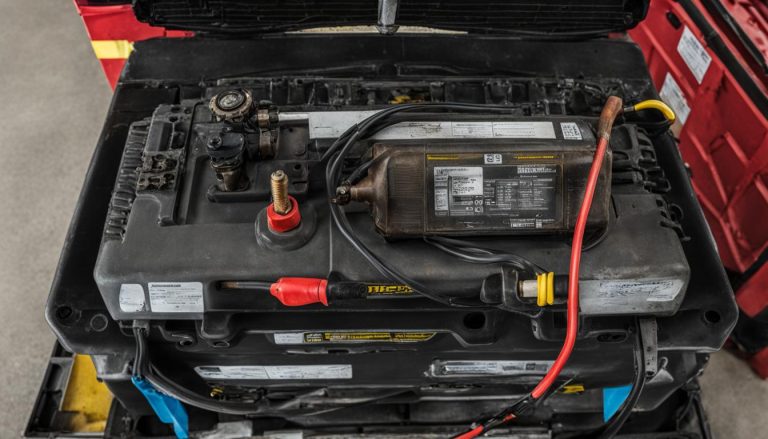Charging Time for 12V Battery at 2 Amps Explained
batterychargers.site and its partners may earn a commission if you purchase a product through one of our links
Have you ever wondered how long it takes to charge a 12V battery at 2 amps? Understanding the charging time for your battery is essential for maintaining its health and ensuring it is ready when you need it. Let’s dive into the details and learn how to calculate the charging time for a 12V battery at 2 amps.
Charging a 12V battery at 2 amps is a relatively slow but safe charging rate. To calculate the charging time, you need to divide the battery’s capacity by the charging rate. For a typical 12V battery with a capacity of around 48 amp hours, dividing 48 by 2 equals 24 hours. So, it will take approximately 24 hours to fully charge a 12V battery at 2 amps.
It’s important to note that using a slower charger like 2 amps is considered healthier for the battery, especially if it’s completely discharged. Fast charging rates can potentially damage the battery, so it’s best to be patient and give it the time it needs to charge properly.
Another factor to consider is the age of the battery. Most car batteries last about 4 years, so if your battery is nearing the end of its lifespan, it may take longer to charge or may not hold a charge as effectively.
Extreme weather conditions can also impact battery health and performance. In extreme cold or hot temperatures, the battery may take longer to charge or may not reach its full capacity.
To ensure a long-lasting and efficient battery, it’s important to follow the recommended charging time and consider the factors that can affect it. Now that you know how to calculate the charging time for a 12V battery at 2 amps, you can confidently keep your battery charged and ready for action.
Key Takeaways:
- The charging time for a 12V battery at 2 amps is approximately 24 hours.
- Slower charging rates are healthier for the battery’s overall lifespan.
- Consider the age and condition of the battery, as well as extreme weather conditions.
Factors Impacting Charging Time for Car Battery
The charging time for a car battery can vary depending on several factors. Understanding these factors is crucial for determining the optimal charging time and ensuring the longevity of your battery.
Charger’s Ampere Rating
One important factor is the charger’s ampere rating. The charging rate, measured in amps, directly affects the charging time. Generally, the higher the charging rate, the faster the battery will recharge. However, it’s important to note that exceeding the recommended ampere rating, which is typically around 20 amps for car batteries, can potentially damage the battery.
Battery’s State of Charge and Condition
The battery’s current state of charge and overall condition also play a significant role in charging time. A fully discharged battery will naturally take longer to charge compared to a partially discharged one. Additionally, an old or damaged battery may require more time to charge fully.
Battery Type
The type of battery you have can impact the charging time as well. Different battery types, such as AGM (Absorbent Glass Mat), flooded lead-acid, or gel batteries, may have varying charging requirements and times. It’s essential to consult the battery manufacturer’s guidelines or reference the owner’s manual to determine the appropriate charging time for your specific battery type.
By considering these factors, you can determine the optimal charging time for your car battery and ensure efficient and safe charging.
| Factor | Impact on Charging Time |
|---|---|
| Charger’s Ampere Rating | A higher ampere rating results in faster charging, but exceeding the recommended rating can damage the battery. |
| Battery’s State of Charge and Condition | A fully discharged battery or an old/damaged battery may require more time to charge fully. |
| Battery Type | Different battery types have varying charging requirements and times. |
Understanding these factors will help you make informed decisions regarding the charging time for your car battery and ensure optimal performance and longevity.
Guidelines for Charging a Car Battery Safely
When it comes to charging a car battery, safety should be your top priority. By following these guidelines, you can ensure a safe and proper charging process.
Before connecting the battery charger, it’s important to check the electrolyte level and clean the battery posts if necessary. If your car is equipped with an alternator, it’s recommended to disconnect the battery terminals before charging to prevent any potential damage.
To connect the battery charger, start by clamping the positive (+) lead to the positive battery post and the negative (-) lead to the negative terminal. Make sure to plug the charger into a fuse-protected power outlet and switch it on. Throughout the charging process, it’s crucial to monitor the charger’s gauge or indicator light to ensure that the battery is effectively charging.
Once the charging is complete, remember to unplug the charger before removing the terminal clips. This helps prevent any sparking or igniting of battery gas. It’s also important to note that different types of car battery chargers are available, ranging from basic home chargers with adjustable charge rates to more advanced models with features like high and low charge settings. Choosing the right charger and following the recommended charge rates is key to maintaining the health of your battery and avoiding overcharging or damaging it.
FAQ
How long does it take to charge a 12V battery at 2 amps?
Charging a 12V battery at 2 amps typically takes approximately 24 hours to fully charge.
What factors impact the charging time for a car battery?
Factors that can affect the charging time for a car battery include the charger’s ampere rating, the battery’s current state of charge, overall battery condition, and battery type.
How do I charge a car battery safely?
To charge a car battery safely, it’s essential to check the electrolyte level and clean the battery posts if necessary before connecting the charger. It’s also advisable to disconnect the battery terminals if the car has an alternator. When connecting the charger, clamp the positive (+) lead to the positive battery post and the negative (-) lead to the negative terminal. Ensure the charger is plugged into a fuse-protected power outlet and switched on. Monitor the charger’s gauge or indicator light during the charging process. After charging, unplug the charger before removing the terminal clips to avoid sparking or igniting battery gas. Different types of car battery chargers are available, so choose one with the recommended charge rates for your battery.


